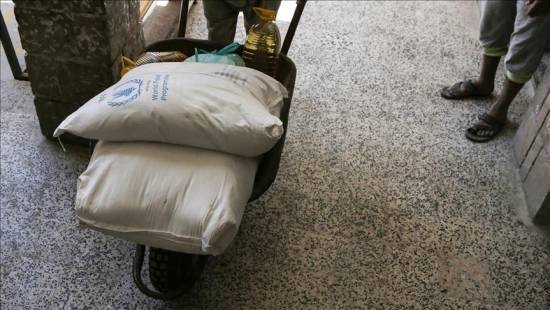UN appeals for urgent funding to provide humanitarian aid to people in South Sudan
The UN’s humanitarian coordinator for South Sudan appealed Monday for urgent funding to meet the needs of the South Sudanese people, who are suffering from multiple interconnected shocks.
According to a statement released by Sara Beysolow Nyanti, current estimates indicate that $400 million is urgently required to provide minimum humanitarian services.
Nyanti said that if these funding gaps are not addressed, it will leave millions of the most vulnerable people at risk of losing access to vital humanitarian assistance and protection.
“The humanitarian context in South Sudan is daunting and is the worst that it has ever been. Everything including protection of women and girls, food, nutrition and shelter is needed,” she said.
Nyanti noted that there are over 2 million people displaced in South Sudan, and the absence of funding means those in camps risk being left in critical need of water, sanitation and hygiene and health services, and the lack of safety and security will further deepen these risks.
“The resources have dwindled, but lives should not,” she added.
For over a decade, the people of South Sudan have faced multiple crises. People’s lives have been shattered by years of conflict, social and political instability, unprecedented climate shocks, ongoing violence, frequent displacements, the impact of the COVID-19 pandemic, food insecurity and multiple disease outbreaks.
In South Sudan, some 8.9 million people -- more than two-thirds of the population -- are estimated to need significant humanitarian assistance and protection in 2022.
The Humanitarian Response Plan requests $1.7 billion to target 6.8 million people with life-saving assistance and protection services. Currently, the plan is funded only at 27%, almost 14% of which was funded by the OCHA-managed Pooled Funds Central Emergency Response Fund and South Sudan Humanitarian Fund. OCHA refers to the United Nations Office for the Coordination of Humanitarian Affairs.
“With such funding gaps, the vulnerable suffer more and humanitarian partners are forced to prioritize, making heart-wrenching choices between severe needs. We cannot give up because the cost of inaction is too high, and people in need cannot afford to pay this price. We need urgent funds and are appealing to the world to remember the most vulnerable in South Sudan,” Nyanti added.
An estimated 1.9 million people will not have access to clean water, sanitation and hygiene services without more funds.
South Sudan’s Minister of Humanitarian Affairs and Disaster Management, Peter Mayen Majongdit, said they are lobbying for funds to cater for their people.
He urged people of goodwill to extend a helping hand to the needy people in South Sudan./aa


